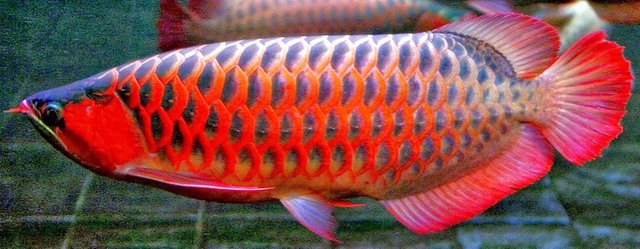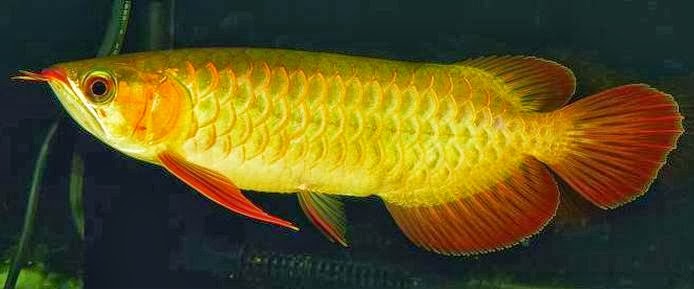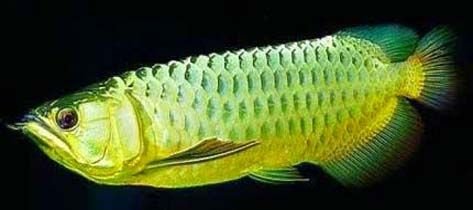Arwana In Asia
Arwana Asia (Scleropages formosus), is one of the freshwater fish species of Southeast Asia. This fish has a long body; Anal fin located far behind the body. Asian Arowana generally has a color of keperak-perakan. Asian Arowana is also called "Dragon Fish" because it is often associated with the dragon of Chinese Mythology
Asian Arowana is a native species of rivers in Southeast Asia, especially Indonesia. There are four color varieties in the location:
- Green, found in Indonesia, Vietnam, Burma, Thailand and Malaysia
- Gold with a red tail, found in Indonesia
- Gold, found in Malaysia
- Red, found in Indonesia
Asian Arowana is listed in the list of endangered species "endangered" by the IUCN in 2004. The number of species is declining due to frequent trading because of its high value as an aquarium fish, especially by the Asian community. Feng Shui followers can pay a high price for this fish.
Arwana Red
Arowana red is a variety of arowana originating from various places in West Kalimantan Province, such as from the Kapuas River and Lake Sentarum. Both places are known as the habitat of Super Red (Chile and Blood Red).
Basically, red arowana is grouped into 4 varieties, namely Red Blood (Red Blood), Red Chili (Chile Red), Red Orange (Orange Red), and Red Gold (Golden Red). These four varieties are generally given the nickname of Super Red or First Grade Red (Red Grade Red), although in its development super red more refer to Red Chili and Red Blood. While the last two varieties are more often considered as super red with lower grade.
Arwana Merah Chili and Red Blood derived from the waters of West Kalimantan, namely from the Kapuas River and Lake Sentarum. These waters constitute the area of peat forests that create a primitive environment for these ancient fish. However, mineral conditions, aquatic environments (black water), and adequate amounts of food reserves have conditioned a good influence on color evolution in the fish. The geographic influence also causes the creation of different variations of the morphology of these fish, such as wider bodies, spoon-shaped heads, more intensive red warnings, and thicker base colors.


